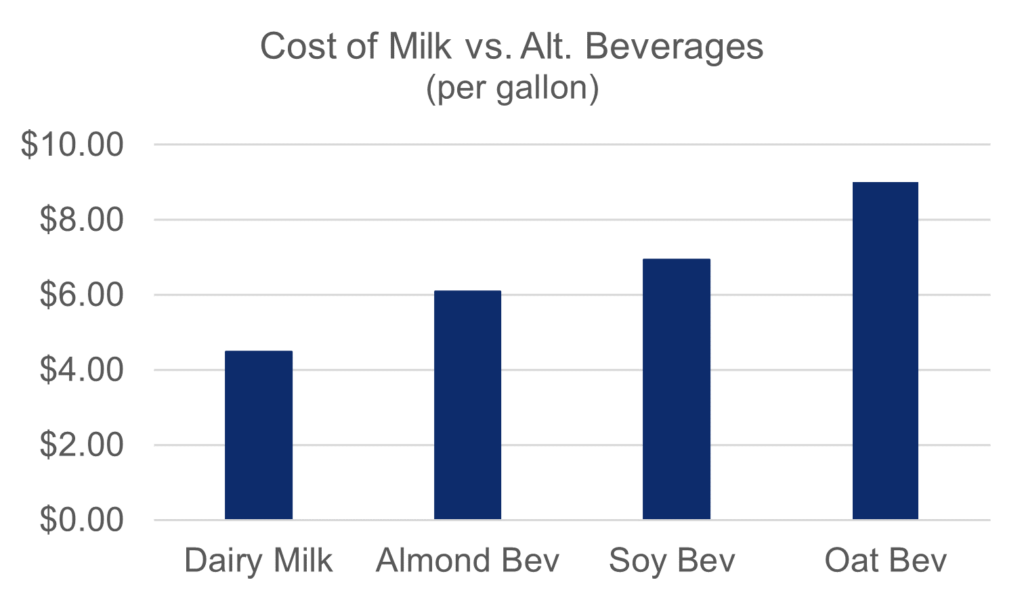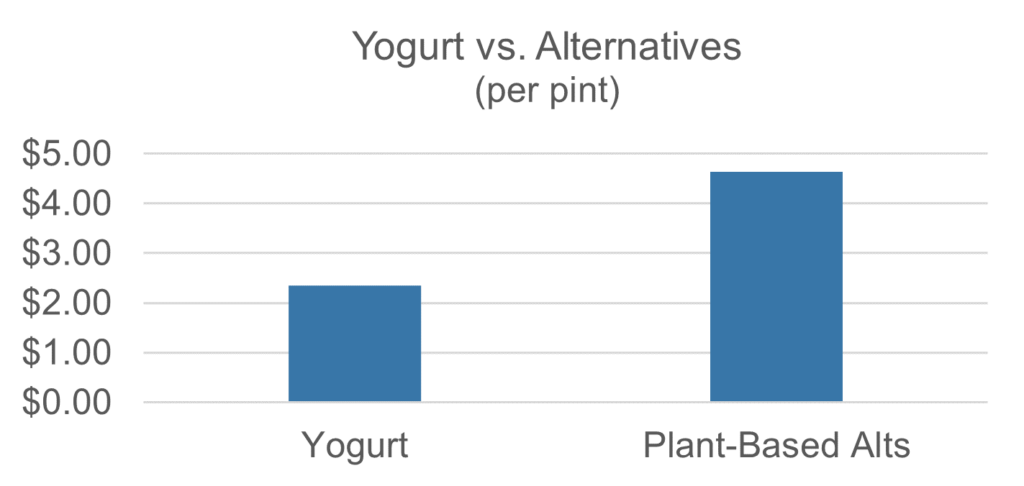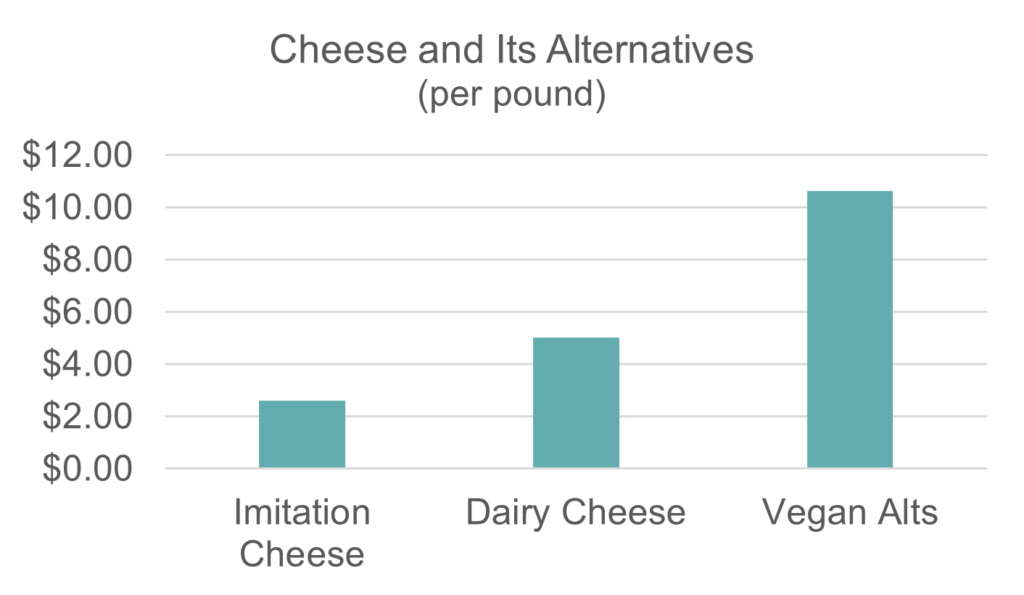Dairy Defined:
Plant-Based = Higher Cost, Lower Quality. Be Sure to Tell Your Barista
March 14, 2022
Vegan activists like to hand-wring from time to time about surcharges to add their favorite plant-based beverage to their coffee drinks, citing all sorts of reasons behind the alleged injustice. Here’s a simpler explanation: Plant-based additives cost more because … they cost more.
Higher costs and lower quality are hallmarks of the “innovation” behind the proliferation of non-dairy products that trade on dairy terms in an attempt to win consumer favor. The lower nutritional content of plant-based beverages is well-established, with some almond brands having one-eighth the protein of dairy and none of them having the unique blend of 13 essential nutrients that set dairy apart. But here’s a quick refresher on the cost side of the equation:
This is year-end data of the cost of a gallon of milk (all varieties) compared to alternatives, year-end 2021. Now you can see why marketers are so enthusiastic about selling highly processed oat water.
Here’s a comparison for yogurt. Not a surprise, when you look at the ingredients label of a pint of yogurt versus a plant-based alternative.
And here’s the one product in which dairy doesn’t win on price, though an asterisk should be involved. Admittedly, a pound of “Imitation Cheese” is more pocketbook-friendly than true, FDA-standard-of-identity compliant cheese – a fact that undoubtedly delights “cheese-type product” lovers everywhere.
But it’s worth noting that even imitation cheese usually contains some dairy – just not in a way that meets cheese standards of identity. Vegan varieties, on the other hand, don’t just function terribly – they cost more than twice as much as real cheese and almost four times as much as the cheaper imitations.
Why does this matter? Because in their long-running efforts to disparage dairy, opponents sometimes use bad-faith arguments to call out companies that are acting rationally when what they really need to do is a little math. Complicated and often expensive ingredients, far-flung supply chains, and high advertising costs all feed into the more-expensive structure of plant-based alternatives (and let’s not even get into profit margins).
The point is, if you’re ever in line for a latte and someone in front of you complains about paying more for an almond addition, you can always point out that their choice may cost more money because … it costs more money. Then, add some whole milk to your beverage, for emphasis. It will bring a smile to your day – and information to someone else’s.









